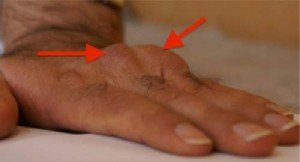
10 Ways To Know If Your Spouse Has Bipolar Disease
Bipolar disease is an easily stereotyped disorder. It is difficult to diagnose due to the stigma around it, and even today individuals suffer under this disease without being assisted by medication because they are unwilling to be stigmatized. If your spouse or someone you love is suffering from bipolar disease and is unwilling to seek treatment, look for these signs.

1. Evasive ideas
Concepts and ideas can fly away easily from someone with bipolar disease, as their brain chemistry operates differently and is susceptible to sudden changes.
2. Trouble sleeping
Brain chemistry also plays a key role in sleep, and can easily be disturbed by bipolar disease. A manic phase may cause sleep to be difficult to attain, or impossible.
3. Erratic behavior
Bipolar disease can cause a number of spontaneous behaviors–mania being the first among them, but also sudden fits of anger or depression.
4. Alcohol or drug abuse
Those prone to bipolar disease can exhibit fixations or even addictions to various substances, including drugs and alcohol.
5. Trouble at work
Fitting into organized groups can be challenging for sufferers of bipolar disease. Spontaneous behavior or mood swings easily destabilize the process of working in a group.
6. Rapid speech
During manic episodes and other symptoms, a persistent method of speech may be use: constant, even pattering and wandering speech. Use discretion to pick out these episodes.
7. Irritability
Strong negative reactions to socializing are a hallmark of bipolar disease–but only when the sufferer is in a depressive state of mind or experiencing an episode.
8. Depression
The swing side of mania is deep, abiding depression. It can be challenging for people with bipolar disease to rise above this.
9. Inability to complete tasks
A lack of desire to do common household chores, to the point of unhygienic behavior, can afflict those with severe bipolar disease.
10. Overly cheerful mood
Periods of mania can last for hours and can be thrilling to the individual–not necessarily to those around them.





